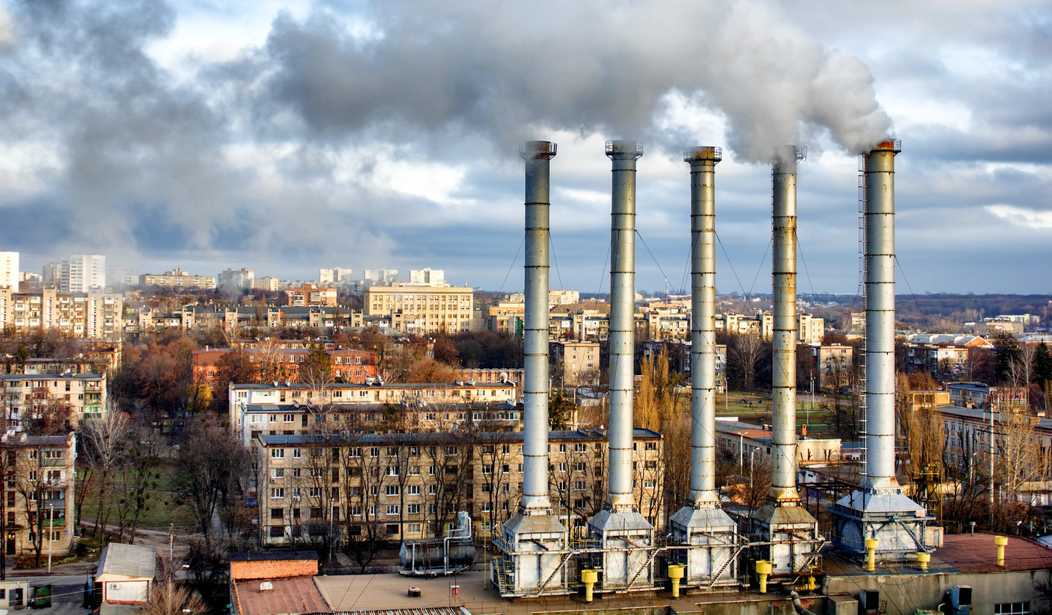WASHINGTON – Sen. Chris Van Hollen (D-Md.) said his latest “cap and dividend” bill, which is designed to combat climate change, would not hurt moderate Democratic candidates in swing congressional districts if they support the legislation.
“I’m not concerned that this will have a negative impact on members of the Democratic caucus because it’s an area where I think the American public is way out ahead of Washington in, first, recognizing the costs of climate change in the form of these extreme weather events that are hitting every community, and also recognizing the opportunities brought by promoting clean technologies,” Van Hollen said during a recent conference call organized by the Chesapeake Climate Action Network.
“For example, the solar industry is one of the fastest-growing industries in the country, with good-paying jobs. Of course, we are a little worried about President Trump’s decisions … but I think you’re seeing around the country people recognizing the importance of the clean-energy economy,” he added.
According to a summary of the bill from Van Hollen’s office, his Healthy Climate and Family Security Act “auctions carbon pollution permits to the first sellers of oil, coal, and natural gas into the U.S. market, and returns 100 percent of the auction proceeds electronically each quarter to every American in the form of a Healthy Climate Dividend.”
Van Hollen said it’s “very important to send a signal that the primary purpose of this legislation is to reduce climate change by making polluters pay, which raises the price of carbon and that incentivizes investments in these other areas already.”
“And we’re going to make sure the costs to homeowners are not only neutralized, but they come out ahead through the dividends,” he said.
Rep. Don Beyer (D-Va.), sponsor of the companion bill in the House, said he has been unable to secure GOP co-sponsors for the legislation.
“So far, no one has said yes. I’ve talked many of them personally,” Beyer said, recalling that he’s heard from GOP members of the Climate Solutions Caucus that it’s too early to pass such a bill.
Beyer said some GOP lawmakers told him they would not support the bill at this time because they do not want a primary opponent financed by the fossil-fuel industry.
“We’ve come a long way, but we’re not totally there yet,” Beyer said on the conference call. “The American people really are way ahead of members of Congress, so there really is very little reason for people to, unless you are in a coal mining county or perhaps in Wyoming, it will be pretty difficult to do that [oppose the bill]. But for most people, especially in the swing districts in America, this is not a heavy lift to be part of this.”
Van Hollen argued that people would be better off than they are now if the bill became law because it puts a price on carbon and returns a “sizable portion” of the proceeds to the public.
“In other words, they will have more money in their pockets after this legislation is passed than before it, and it’s based on a market system,” he said. “We believe this particular bill has the elements that will resonate with people throughout the country.”
Beyer, who owns numerous car dealerships across Northern Virginia, was asked if he thinks the business community will support the cap and dividend bill. In response, Beyer said he thinks there is a “consensus” among business leaders that enacting a carbon fee would make sense. He also thinks many Republican business leaders see the potential in switching to renewable energy technologies.
“I’ve talked to many corporate CEOs in the last two or three years who say, ‘why don’t you guys just do a carbon tax? We won’t have to deal with the EPA in energy,’” he said.
Rev. Lennox Yearwood Jr., Hip Hop Caucus president and CEO, said carbon pricing is the right move from a moral standpoint.
“We have to transition from fossil fuels to clean energy and we have to do it now,” he said. “There is no question about that. The results will be catastrophic.”









Join the conversation as a VIP Member